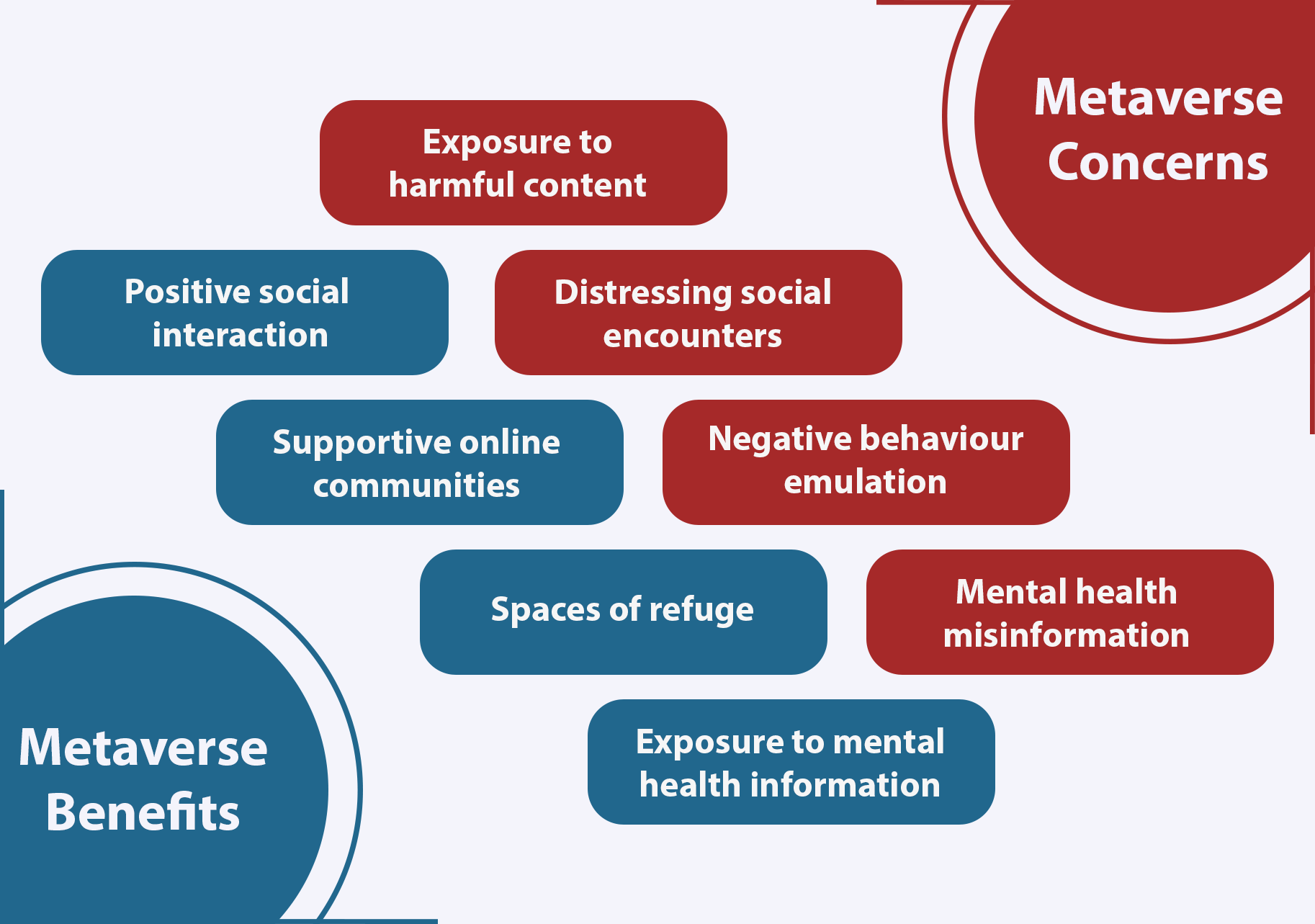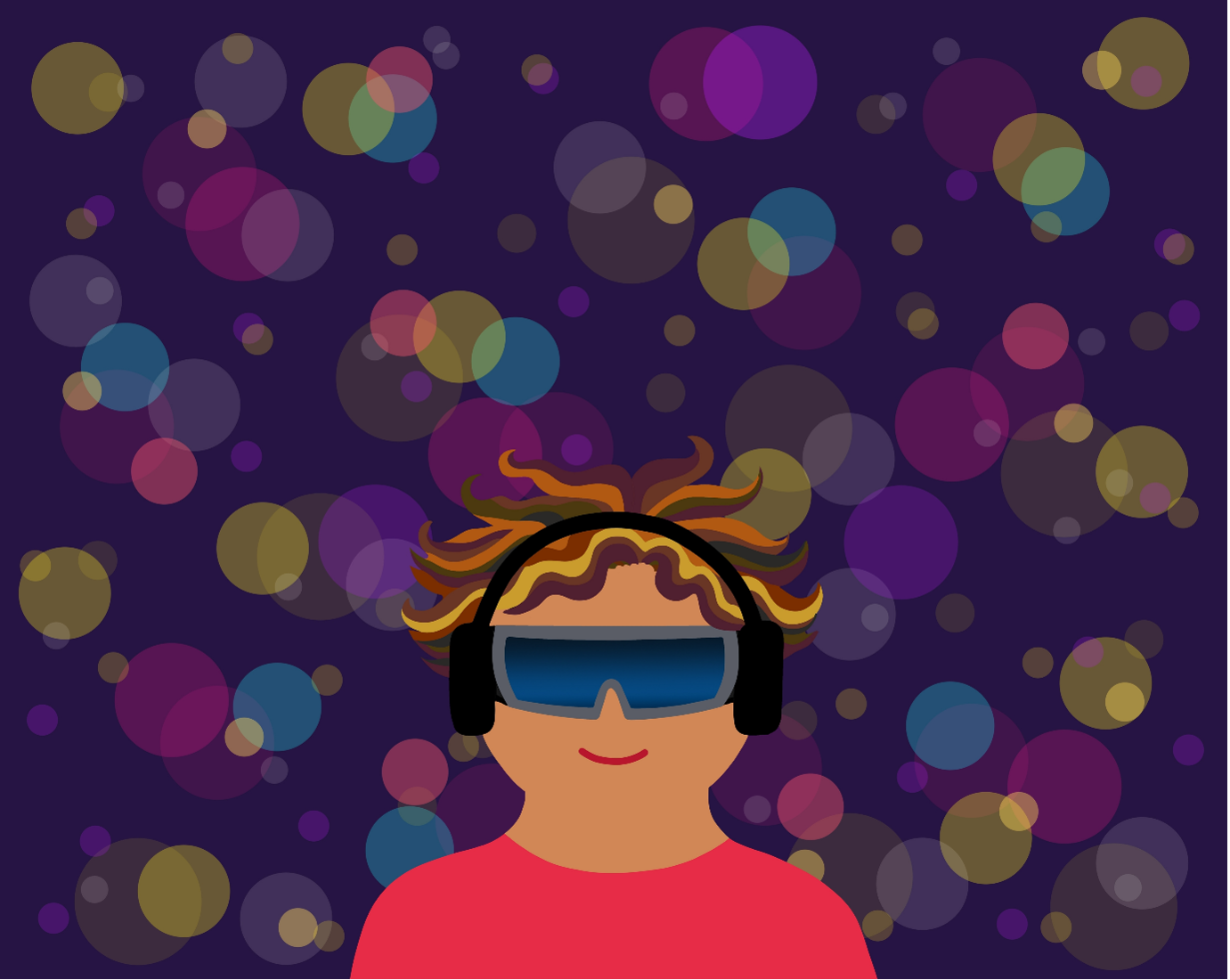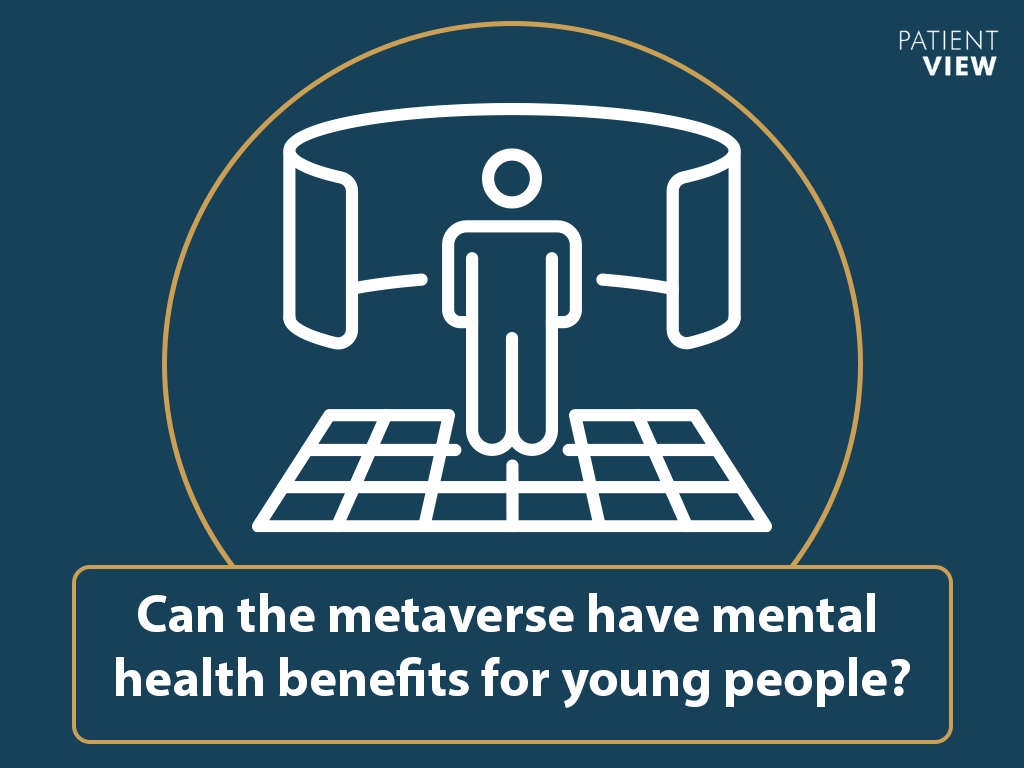Can the metaverse have mental health benefits for young people?

October 2023:
Online spaces—be they discussion forums, video games, and virtual or augmented reality—have become a central part of almost every young person’s life. Young people are spending more time socialising online than ever before.[1] The size, depth, and multitude of these online worlds (known collectively as the ‘metaverse’) provide a freedom and exhilaration that can match, and sometimes even surpass, the physical world.[2]
A July 2023 report from the JED Foundation (a US-based, mental-health youth charity) explores the mental-health impacts of the metaverse, both positive and negative, for young people between the ages of 13 and 24. The JED Foundation’s Advisory Board recommended a comprehensive approach to ensuring the protection of youth mental health across the metaverse, including collaboration between young people, educators, caregivers, policymakers, technology companies, and mental-health professionals.[3]

The negatives: areas of risk and concern
The JED Foundation report highlights metaverse-like online areas of content potentially harmful to young people experiencing eating disorders, self-injurious thoughts and behaviours, or substance abuse. Several studies have identified strong association with negative mental-health outcomes in young people who are exposed to, or who interact with, content promoting these dangerous behaviours. The exposure mostly begins when a young person emulates, or is encouraged by, other users. Engaging with harmful content can even lead to platform algorithms continuing to serve related content to a user, should that user cease engagement.
Social interaction is a feature shared by almost all metaverse-like spaces, but anonymity and privacy settings can easily lead to cyberbullying, sexual harassment, extremism, and hate speech. Although such behaviours are not exclusive to online spaces, they can be more difficult to avoid within the metaverse, and potentially harmful. Over half of all US adolescents report experiencing cyberbullying or harassment, increasing the risks of depression symptoms and suicidal thoughts.[4]
The positives: benefits of metaverse engagement
However, the JED Foundation’s report also highlights opportunities for youth mental-health benefits within the metaverse. These include social support. Opportunities to connect with others who share similar interests, opinions, or experiences are a commonly-reported motivation for metaverse engagement, and have been shown to enhance wellbeing, and to fulfil the need for social belonging.

The Jed Foundation report concludes:
“We see a pressing need to prioritize and support mental health in the design, build, function, regulation, and oversight of these spaces. Based on the evidence, our Advisory Board and Youth Advisory Group developed recommendations for developing and engaging with metaverse and metaverse-like spaces in ways that promote mental health. We identified key opportunities for major stakeholders—teens and young adults, their caregivers, educators, health-care professionals, influencers, and technology leaders—to leverage their specific relationships, skills, and access.”
For more information about the JED Foundation reports on the metaverse, go to:
https://jedfoundation.org/metaverse-and-youth-mental-health/
For more on mental health, read PatientView’s recent report:
Corporate Reputation of Pharma 2023: Mental Health Edition
[1] https://www2.deloitte.com/us/en/insights/industry/technology/digital-media-trends-consumption-habits-survey.html#explore
[2] https://www.sciencedirect.com/science/article/pii/S0268401222000767
[3] https://jedfoundation.org/the-jed-foundation-jed-issues-new-report-urging-action-to-ensure-metaverse-environments-prioritize-the-mental-health-and-safety-of-youth/
[4] https://www.pewresearch.org/internet/2018/09/27/a-majority-of-teens-have-experienced-some-form-of-cyberbullying/
